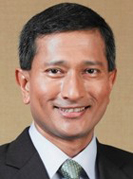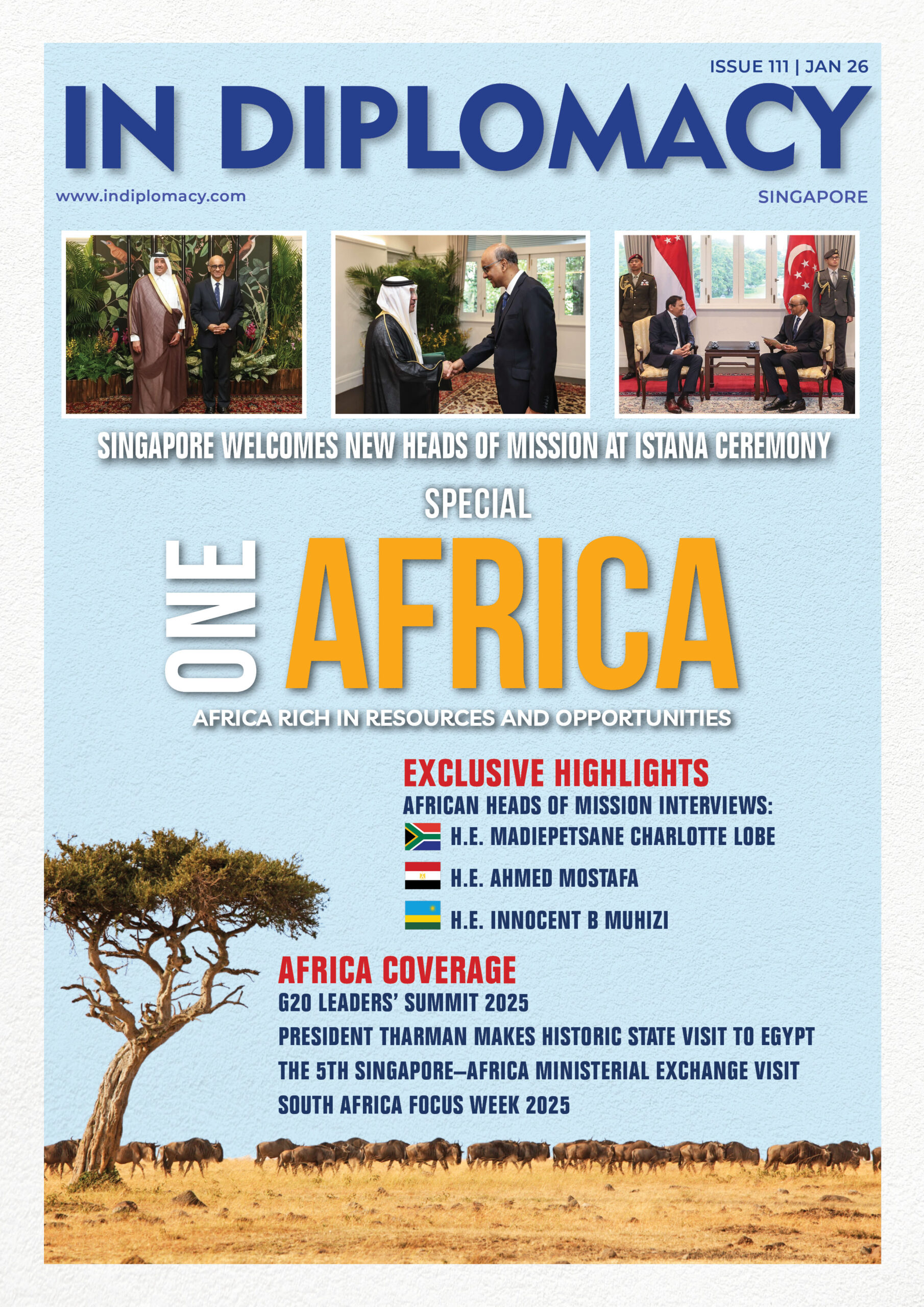Sun Media Pte Ltd is a Singapore based communications, media and publishing company that provides corporate one-stop marketing, public relations, events management, brand consultancy, advertising, printing, and distribution services.
In Diplomacy
IN Diplomacy was launched in 2016 to cater to the diplomatic community in Singapore and has its own dedicated website. The initiative was based on the need for a “consolidated source of information that will help the diplomatic community reach more institutions and Singaporeans.” (Click here).
To send in your articles, press releases or events, please email, edit@sunmediaonline.com/ nomita@sunmediaonline.com
What is a Diplomatic Mission?
A Diplomatic Mission is a group of people that represent one state or international intergovernmental agency in another state. Missions are a resident representation in the host country. It could also be a non-resident permanent Mission to a few countries.
What is an Embassy?
An Embassy is a permanent diplomatic Mission and is headed by Ambassador or High Commissioner. The office of an Ambassador is called an Embassy. Missions between Commonwealth countries are called High Commissions.
What is Letter of Credence?
An Ambassador represents one head of state to another and the Ambassador’s letter of credence are addressed by their head of state to the head of state of the host country.
What is the role of Diplomatic Mission?
- Protection of the interests of the home country and its citizens in the host country.
- Negotiation with the government of the host country.
- Reporting and Monitoring the conditions and developments in the commercial, economic, cultural, and scientific life of the host country.
- Promoting friendly relations between the host country and the home country.
- Developing commercial, economic, cultural, and scientific relations between the host country and the home country.
- Issuing passports, travel documents, and visas.
History of the Dean
According to Historian, Garrett Matingly, the diplomatic corps originated in Rome, which from the middle of the fifteenth century was the ‘chief training school and jousting field of diplomacy’. However, the origin of the term “diplomatic corps” probably dates back to 1754, when the Imperial Court of Vienna so designated the meeting of all diplomats accredited to it at that time.
The diplomatic body is embodied most obviously in its dean. This person is generally the longest serving member of the highest class of diplomat accredited to the country in question. He or she acts as a mouthpiece to the government of the receiving state on matters of professional concern, and also as the representative of the diplomatic corps on certain ceremonial occasions. In the Latin American countries, the role of dean of diplomatic corps is assumed by the “Apostolic Nuncio of His Holiness”, as ex officio dean, following the custom established by the Congress of Vienna in 1815, particularly in traditionally Catholic countries. However, in other countries, the dean is the head of mission that occupies first place in seniority among all resident Heads of Mission. The diplomatic body has its own meetings, which are presided over by the dean. He is often supported by a vice dean. In addition, he is generally advised by three or four ambassadors (preferably in different geographical areas) for various activities or actions.
The dean of the diplomatic corps has the authority to take the floor during meetings called by the host government to express opinions related to issues that affect diplomatic privileges or involve a serious violation of international law. The dean’s interventions are usually preceded by a meeting of the Heads of Mission, where various matters are aired followed by discussion on steps to be taken to resolve pressing issues.
The dean also guides newly arrived Heads of Mission to various aspects related to their functions in the receiving State and organises farewell event for departing Head of Mission.
Interview
H.E. Agustín García-López Loaeza, Ambassador Extraordinary and Plenipotentiary of Mexico to the Republic of Singapore, in conversation with In Diplomacy Editor-in-Chief Nomita Dhar, shares his thoughts on becoming the new Dean of Singapore’s Diplomatic Consular Corps.
AMBASSADOR Agustín García-López Loaeza, Mexico’s ambassador to the Republic of Singapore, has taken over the deanship of Singapore’s Diplomatic Corps. A career diplomat, Ambassador García-López has enjoyed an exceptional range of experiences since he joined the Mexican Foreign Service in 1991 and served in various positions at the Secretariat of Foreign Affairs, Secretariat of Finance and Public Credit, and Overseas Representations.
Prior to his appointment in Singapore in 2019, Ambassador García-López Loaeza, served as Mexican Ambassador to France and Canada and as the Executive Director of the Mexican Agency for International Development Cooperation, AMEXCID, from 2017 to 2019, equivalent to the rank of an Undersecretary at the Ministry of Foreign Affairs of Mexico.
Smilingly accepting congratulations on the new appointment from Ms Dhar he says: “It’s an honour and a privilege because the Diplomatic Corps in Singapore is an outstanding one.”
His Excellency the ambassador is really pleased in the turn of events as he is no stranger to deanships. In his career path this is his third deanship.
He recalls that he has also served in a number of finance-related roles in the Mexican government. In that context he shares that he was part of the Executive Board of the Inter-American Development Bank and the Inter-American Investment Corporation representing Mexico and the Dominican Republic (2000-2007). It was while he was posted there that he was appointed as dean of the Council of such a Regional Bank. Elaborating further he says: “That entailed being a functional dean. I was also the head of the committee of committees. I also headed the Ethics Committee as a dean. That was a great experience.”
When Ambassador García-López Loaeza was serving as the Permanent Representative of Mexico to the Organization for Economic Cooperation and Development, OECD (2007-2013) he was also given the deanship of the ambassadors to the OECD. “That was also a strategic role within the organisation because as Dean I represented all ambassadors to establish a direct coordination with the Secretary General and his team before the Council meetings,” he says.
Returning to the matter of his deanship of the Singapore Diplomatic Corps, he reaffirms his commitment to shine the light on how important the role of the diplomatic corps is in a city state like Singapore.
While sharing the way forward for him as dean, he speaks of the steps taken by the prior deans, and is of the belief that they have done a wonderful job. He hopes to continue on that path they have walked and bring in fresh inputs as a representative of Singapore’s diplomatic community.
His outlook on Singapore is that “It is a very open country. International relations are vital for Singapore’s trade, for economics, for its social life, for its cultural and political endeavors. Singapore thrives in the international scene with increasing relevance and vision and it’s building more and more mutually enriching bilateral relationships but also, it is enhancing its multi-lateral presence in today’s global issues.”
In the light of this, Ambassador García-López Loaeza opines that being the representative of the diplomatic corps he aims to highlight this enormous richness of representation of each of the consuls here in Singapore.
Commenting on the need for events that are held to spotlight the activities of the diplomatic corps– and the welcome dinners and farewells, the ambassador believes: “It is very important to greet and say goodbye to the ambassador who have done a fantastic role here in Singapore… to have a special plaque commemorating their stay.” But he is quick to point out that there are also meetings that are held, important information-based meetings that are very useful in the interface with the government. He cites an example of how the Ministry of Environment recently invited him to share his views, as dean, on the country’s’ Environment policy. The ministry also presented a candidate for the Scientific Committee.
What lends strength to Ambassador García-López Loaeza’s aims under his deanship is the active participation of his embassy, with him at the helm, in many events, social, business or trade. A good example was the Singapore Expo, an excellent platform for interfaces with other consuls in the island -state who had also gathered to showcase their nations products and services to engage with Singapore and regional entities to further business and trade opportunities.
Highly skilled in communications, being fluent in English, French and German, Ambassador García-López Loaeza is married to Katya Anaya de la Fuente, with whom he has two children, Agustín Mateo and Pablo Eduardo.
About Singapore
The foreign diplomats present their credentials to the President of the Republic of Singapore, and subsequently work in coordination with Ministry of Foreign Affairs headed by:
 |
Dr Vivian BALAKRISHNAN, Minister for Foreign Affairs |
The Other Ministers:
 |
Dr Mohamad Maliki Bin Osman, Minister in the Prime Minister’s Office, Second Minister for Education and Second Minister for Foreign Affairs |
Why IN Diplomacy?
IN Diplomacy is a platform to highlight the many initiatives undertaken by the Embassies and High Commissions.
What is Diplomatic Corps
The Diplomatic Corps is the body of diplomats representing other countries in a particular state. In some countries, the longest-serving ambassador to a country is given the title Dean, or Doyen, of the Diplomatic Corps and is sometimes accorded a high position in the order of precedence. In New Zealand, for example, the dean takes precedence over figures such as the deputy prime minister and former governors-general.
How is IN Diplomacy and Diplomatic Corps related?
IN Diplomacy publication and website is an initiative by Sun Media Pte Ltd. Both cover topics related to the diplomatic corps.
Singapore maintains diplomatic relations with 189 UN member countries. of these IN Diplomacy covers the activities of the more than 70 resident diplomatic missions in the island nation.












